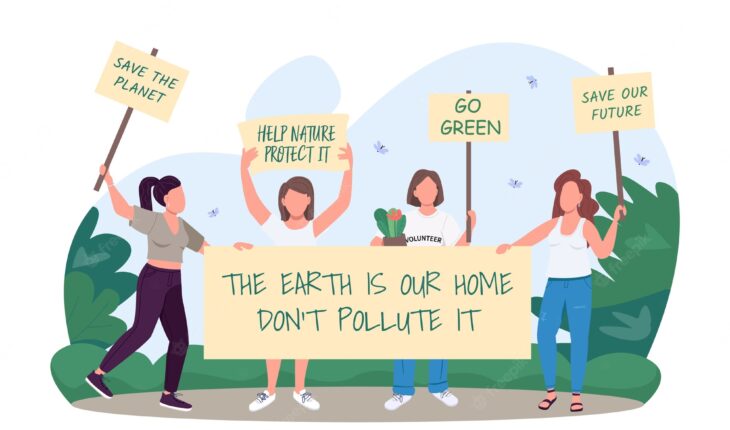
Efforts are going on around the world to protect the environment and minimize the effects of climate change. In this direction, the Himachal Pradesh State Pollution Control Board (HPSPCB) has been considering a proposal to give a green rating to the hotels and resorts in the hill state. This rating will be given on the basis of environment-friendly measures taken by the hotels to reduce pollution. Generally, hotels are rated in three and five-star categories according to the facilities provided to the guests, but it will be perhaps for the first time in the country that the green rating will be given to the hotels and resorts. It is also important to take such small measures in the direction of controlling pollution and reducing the impact of environmental degradation. In order to provide luxurious facilities to the guests, big hotels sometimes indulge in such activities which cause decay. Replacing diesel-powered electric generators with solar energy panels to deal with the power outage or failure, and provision of natural light and ventilation to the buildings may be such good measures. Similarly, there is a lot of pollution from airplanes also. More than 50 percent of the world’s air travelers want less air pollution from flights and they are willing to pay a little more for this measure.
Management consulting firm McKinsey & Company conducted a survey in 13 countries in which most air travelers expressed concern about air pollution caused by airplanes. About 5,500 people were consulted in the survey, of which 40 percent agreed to pay 2 percent additional money if the carbon emissions are reduced. In Spain, 60 percent of air passengers expressed their desire to opt for carbon-neutral flights. Not only aircraft, but some trains also add to the air pollution, primarily diesel engine driven trains. In India, 37 percent of trains are still dependent on diesel engines. They cause a lot of pollution, and to reduce this the railway is working towards using biodiesel in the fossil fuel-based engines. The Ministry of Railways plans to completely electrify the railways by the year 2023, that is, the above 37 percent diesel locomotives should also be replaced by electric locomotives. Diesel engines of freight trains may need a little longer time.
Union Railway Minister Ashwini Vaishnav wants that by the year 2030, Indian Railways should be completely transformed into ‘green railways’. Railways set up a solar power plant in Bina, Madhya Pradesh in February this year to generate the power it needs. Similarly, wind power plants are being planned in Rajasthan, Tamil Nadu, Karnataka, and Gujarat. There is a plan to illuminate railway buildings and premises with LED bulbs for lighting, so as to save electricity and contribute towards environmental protection. The trend of electric vehicles has already begun, which will help in controlling pollution. Japanese companies like Honda have been the world leaders in automobiles, but over the years they have been facing stiff competition from automakers in the US and Europe, especially from companies like Tesla. Sales of electric vehicles (EVs), especially battery-operated cars, increased in the US, Europe, China, and around the world last year. Booking of EV cars is happening so fast that companies have even started taking full amounts in advance from the buyers.
The world came to a standstill position following the Covid pandemic, which was impacted further by the Russian action on Ukraine. But humanity faces a greater threat from climate change. Wars and military actions only exacerbate climate change. For example, due to the presence of the Indian Army on the high glaciers of the Himalayas on the Pakistan border, the snow keeps melting, which disturbs the environmental balance in the Himalayan region. The UN panel report on climate change says that the emission of greenhouse gases has increased by 14%. Developed countries have a big role in deteriorating the situation, whose anti-environmental activities have threatened life on half the earth.
The continuous emission of greenhouse gases puts a question mark on the future of plants, animals, and humans. The existence of all the flora and fauna on earth is dependent on each other. This interdependence is called an ecosystem. The balance of the ecosystem deteriorates due to the increase in the number of greenhouse gases. For example, due to the excessive use of pesticides in agriculture, 75% of the world’s insect moths have been destroyed, which are food for birds. Due to the elimination of insects, birds are not able to get food, due to which their population is rapidly declining. Similarly, the extinction of ponds and natural water bodies is killing the species of small animals like frogs and tortoises among others. The existence of snakes is in danger in the absence of frogs. Losing any one organism in an ecosystem means that other species that depend on it will die. Due to this imbalance in nature, the life of humans is also in danger.
Since the world is passing through a major crisis; our daily life is also getting affected. For example, cooking oil prices have gone up in the wake of war, but prices are expected to remain stable in the coming days. The production of oilseeds is expected to be good in the country this year, hence the supply of mustard oil and soybean oil is expected to be satisfactory in the approaching months. According to the news being received from the agriculture sector, the production of mustard in the country is expected to increase by 40 lakh tonnes, due to which the supply of mustard oil will increase by 15 lakh tonnes. Soybean production has also improved. India consumes about 18 lakh tonnes of cooking oil every month.
—The writer is a senior journalist and columnist. Views are personal
Twitter @narvijayyadav



